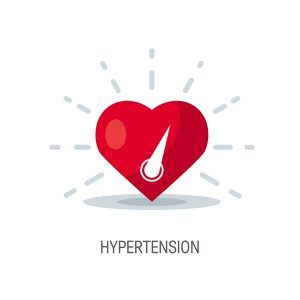 How much do you know about senior heart health and what you should be doing? You may have “high blood pressure,” and not even know it. That’s because experts lowered the threshold for what’s considered “high” in 2017. Almost half of Americans—103 million people—are considered to have high blood pressure. This is in part because of the lowered baseline for hypertension: it went from 140/90 to 130/80.
How much do you know about senior heart health and what you should be doing? You may have “high blood pressure,” and not even know it. That’s because experts lowered the threshold for what’s considered “high” in 2017. Almost half of Americans—103 million people—are considered to have high blood pressure. This is in part because of the lowered baseline for hypertension: it went from 140/90 to 130/80.
Does that mean that all seniors have high blood pressure? That reduction in the guidelines tripled the number of men and doubled the number of women aged 45 or under who were diagnosed with high blood pressure. It also lifted practically all people over 65 into the danger zone.
These startling numbers might raise your blood pressure even more if you suddenly find yourself burdened with a heart disease diagnosis of hypertension you didn’t have before the shift in policy. So what should seniors do if they want to maintain a healthy heart as they age?
Senior Heart Health: Lifestyle or Medications?
I don’t want to be cynical, but by changing the definition of hypertension, doesn’t this allow doctors to prescribe more statins and other blood pressure medications? I sure hope this decision wasn’t guided by economical benefits to pharmaceutical companies, but it sounds similar to the way our nutritional guidelines are heavily influenced by big agricultural interests.
So I read some of the online articles that explained the shift in guidelines for hypertension, and in fact, there are some good reasons for lowering the diagnostic criteria besides early detection and prescriptions.
Senior heart health depends a lot on your participation, along with your doctor’s treatment plan. You’d think that with so many American’s suffering, doctors would stress that seniors should eat a better diet and exercise regularly as part of good prevention and treatment strategies. While many do focus on prescribing medications, I believe that many more are adopting lifestyle strategies, including nutrition, building muscles, and avoiding known risks such as alcohol, smoking, and being overweight.
Heart Disease Deaths: A Success Story
One of the big success stories of modern medicine is in the decline of heart disease. In 1950, 600 Americans per 100,000 died from it, compared with 168 per 100,00 today. But it is still the leading cause of death, more than cancer, diabetes, and accidents combined.
High blood pressure is a definite health hazard. It damages arteries in the heart, kidneys, and throughout the body, leading to heart attack, heart failure, stroke, kidney failure, and other serious health problems. That’s why many doctors recommend aggressive steps for lowering high blood pressure.
What Is Normal Blood Pressure?
In other words, for seniors who want to be in the healthy ranges and avoid heart disease, they need to be even more rigorous with diet and exercise. Here’s a good explanation from the Harvard Health blog, from Dr. Howard LeWine, in an article titled, “Blood pressure goals may need to change with age:”
Normal blood pressure is a systolic pressure of less than 120 and a diastolic pressure of less than 80. Systolic pressure (the upper number in a blood pressure reading) refers to pressure in the arteries when the heart beats. Diastolic pressure (the lower number) measures pressure in the arteries between heart beats. Blood pressure between 120/80 and 140/90 is borderline high (prehypertension), while blood pressure above 140/90 defines high blood pressure. These are the numbers that guide when to start and change drugs to lower blood pressure. But as we are learning about other conditions, a one-size-fits-all approach doesn’t work. What is right for controlling blood pressure in a 50-year-old might not work for a frail 80-year-old.
More Individual Guidelines for Seniors
Among my senior friends, many have low blood pressure, which can leave them tired and listless. As one researcher in Dr. LeWine’s article states: “As the blood vessels get more stiff with age, it may be necessary to have more pressure to keep blood pumping to the central organs, like the brain and heart.”
I’m all for that. As a senior who has always had BP on the low side, it’s just as important to not over-medicate when it comes to heart health. A lot can be achieved through diet and exercise.

Recent Comments